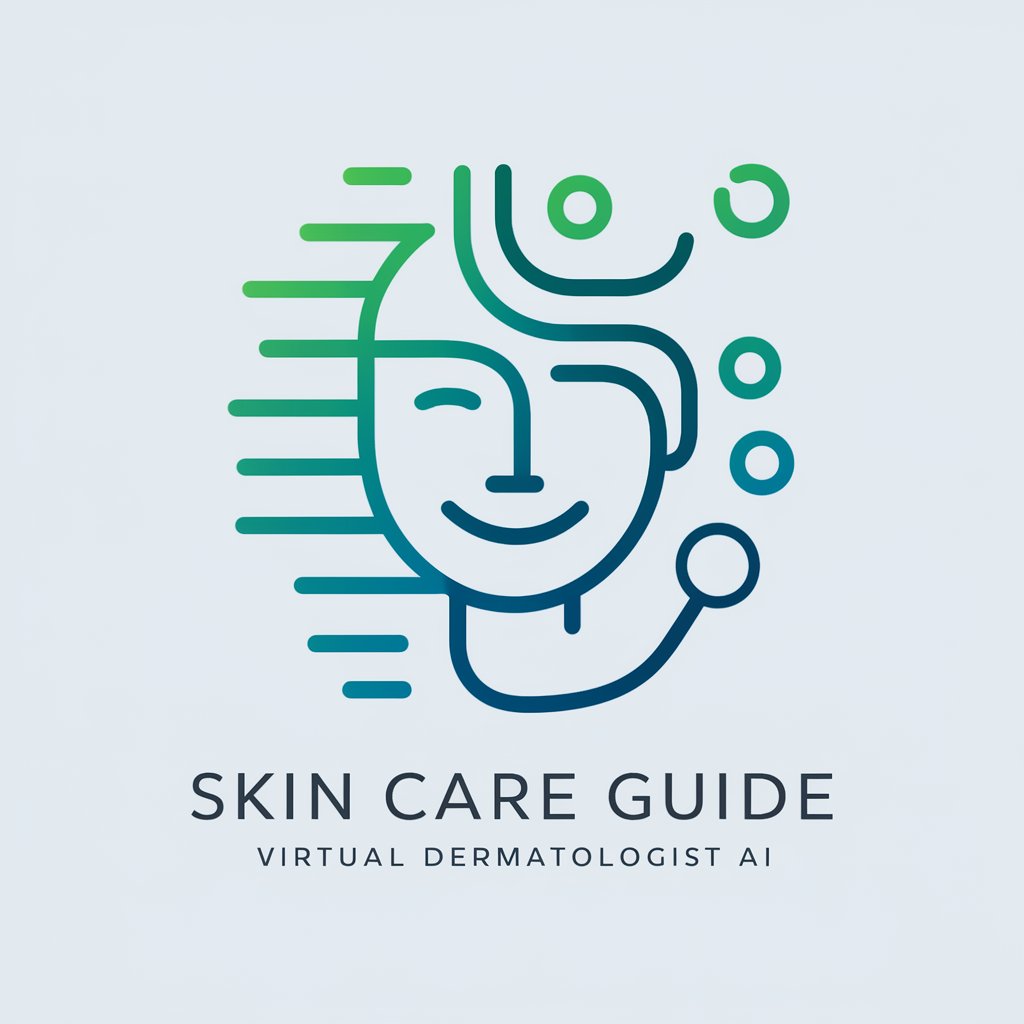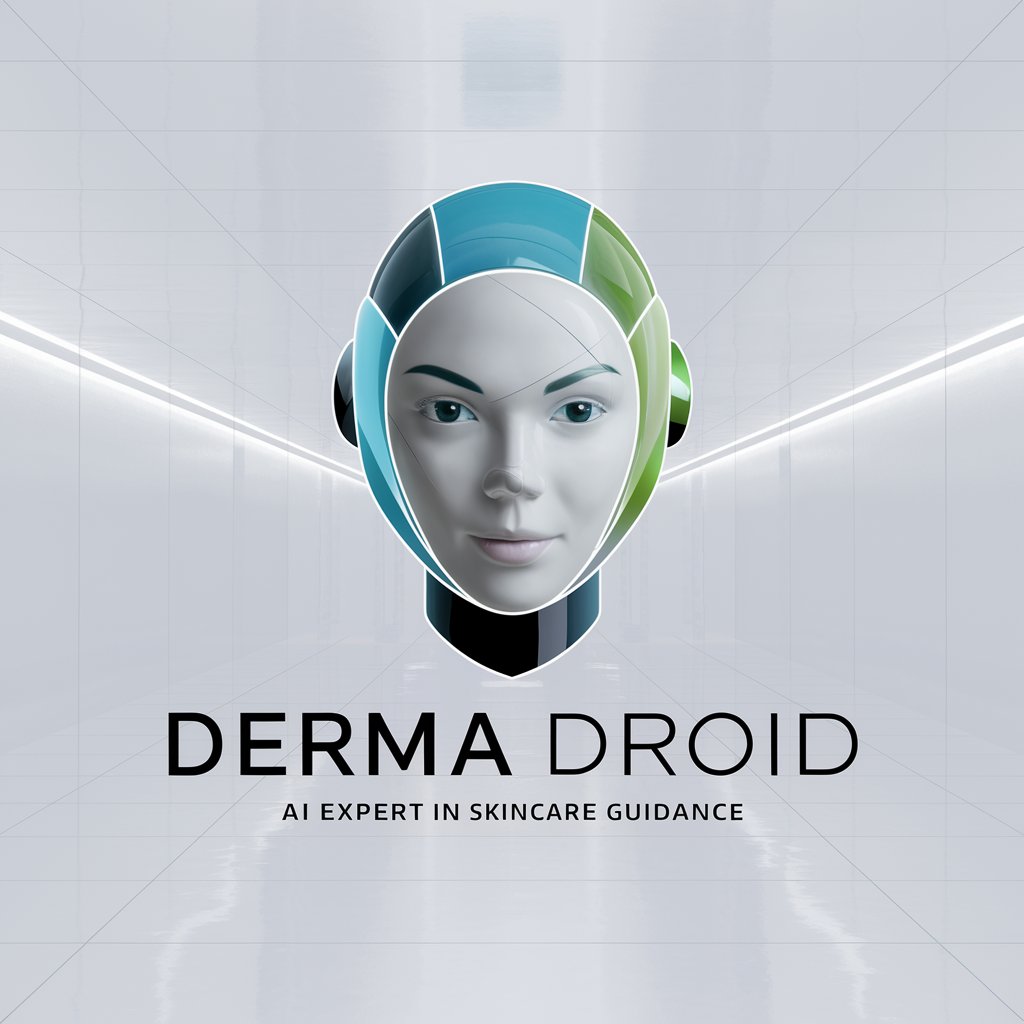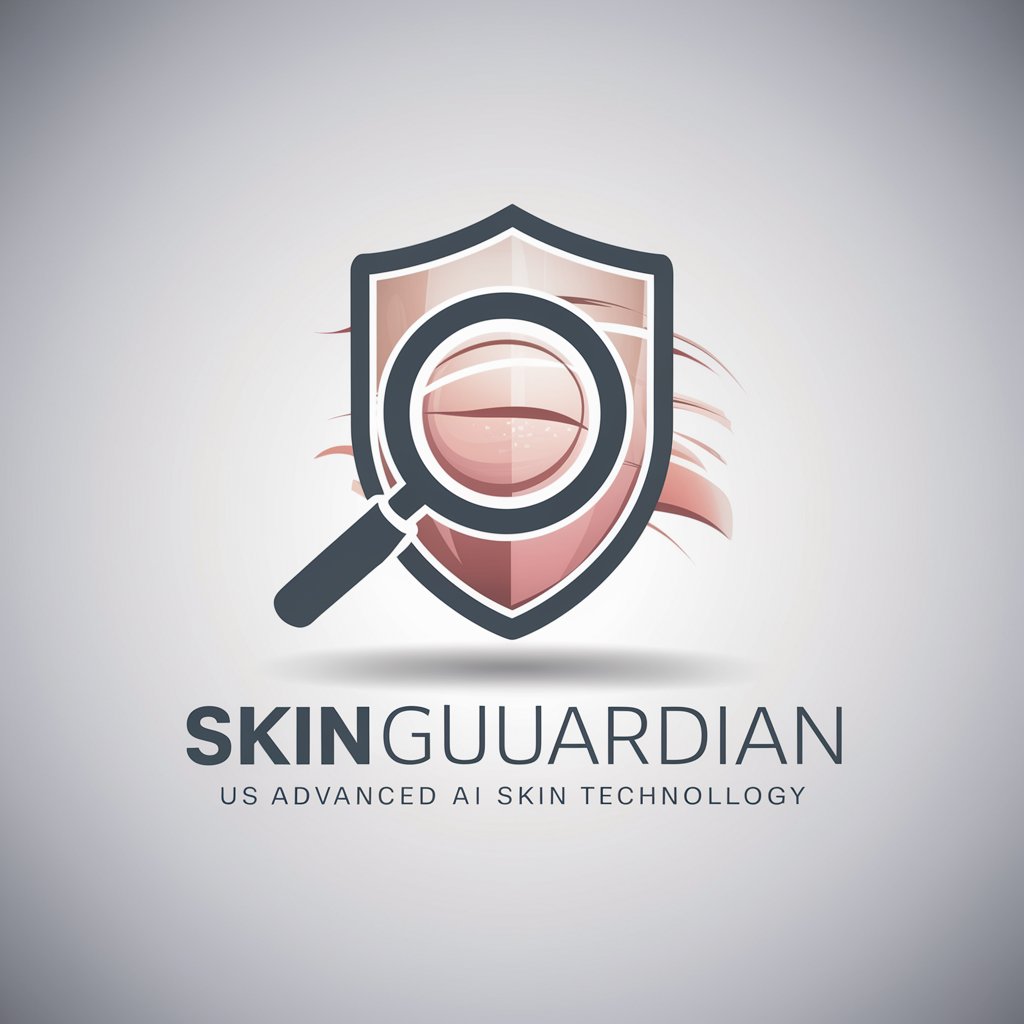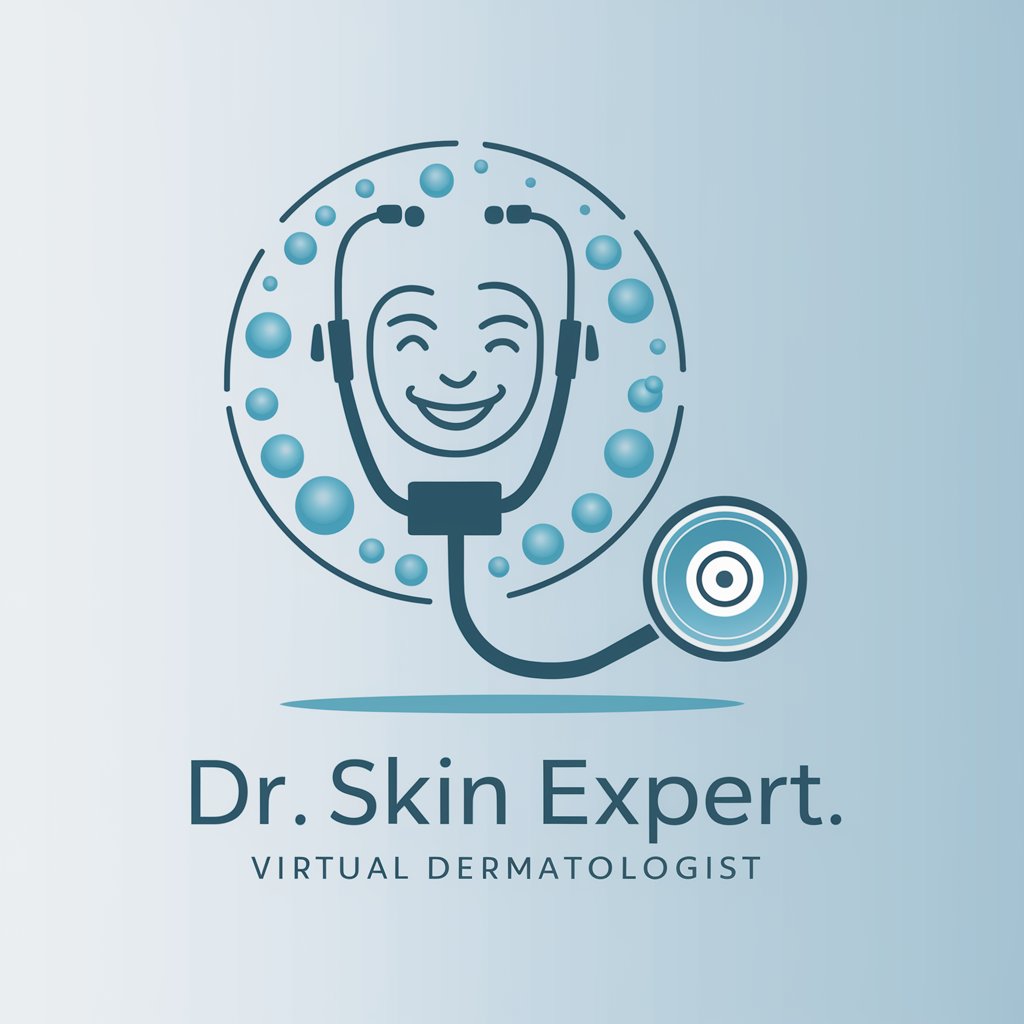
Skin Treatment Outcome Predictor - AI-driven skin treatment predictions
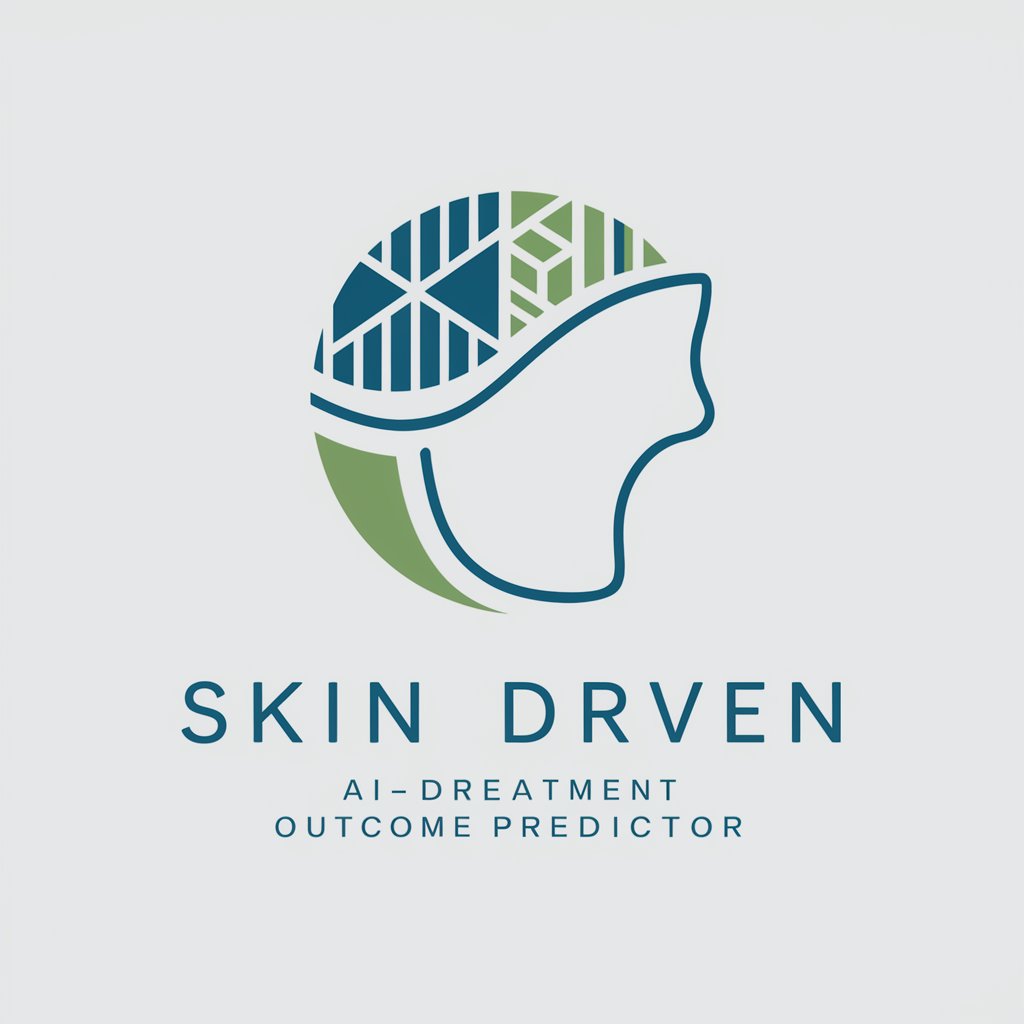
Welcome! Let's explore personalized skin treatment insights together.
Optimize Skin Care with AI Insights
Can you help me predict the outcome of a specific skin treatment?
What insights can you provide about the effectiveness of acne treatments?
How can I optimize my skincare routine based on my skin type?
What data should I consider when choosing a treatment for eczema?
Get Embed Code
Overview of Skin Treatment Outcome Predictor
The Skin Treatment Outcome Predictor is designed to leverage data analysis and dermatological research to predict outcomes of various skin treatments. This tool synthesizes information from vast datasets, including patient demographics, skin condition specifics, treatment histories, and clinical outcomes to forecast how patients might respond to different dermatological treatments. For example, it can analyze data from patients with eczema to predict the effectiveness of a new topical steroid cream based on factors like age, severity of the condition, and prior treatment efficacy. This helps in personalizing treatment plans and optimizing therapeutic approaches. Powered by ChatGPT-4o。

Core Functions of Skin Treatment Outcome Predictor
Treatment Efficacy Prediction
Example
Predicting the success rate of phototherapy in patients with psoriasis.
Scenario
A dermatologist inputs the patient’s severity of psoriasis, previous treatment responses, and comorbidities into the predictor. The tool analyzes data and provides a probability score of achieving clear skin with phototherapy, aiding in decision-making about whether to recommend this treatment.
Personalized Treatment Insights
Example
Customizing acne treatment plans based on individual patient profiles.
Scenario
For a patient struggling with moderate acne, the tool can predict how well they would respond to benzoyl peroxide versus salicylic acid treatments by comparing similar cases in its database. This helps in crafting a personalized treatment strategy that maximizes effectiveness and minimizes adverse effects.
Risk Assessment of Side Effects
Example
Evaluating the risk of side effects from long-term topical corticosteroid use in atopic dermatitis.
Scenario
The predictor evaluates the risk factors and past patient data to forecast the likelihood and severity of potential side effects like skin thinning. This helps clinicians discuss risks with patients and consider alternative therapies or preventive measures.
Target Users of Skin Treatment Outcome Predictor
Dermatologists
These medical professionals can use the predictor to enhance their understanding of how different patients are likely to respond to treatments, which is crucial for tailoring therapies to individual needs and optimizing clinical outcomes.
Research Scientists
Researchers focusing on dermatology can utilize the predictive analytics of the tool to understand treatment outcomes across diverse populations and skin conditions, facilitating more targeted and effective future studies.
Healthcare Policy Makers
Policy makers can leverage insights from the predictor to understand trends and treatment effectiveness, which can guide decisions on healthcare policies, funding allocations, and patient care protocols especially in dermatological care.

How to Use the Skin Treatment Outcome Predictor
1
Visit yeschat.ai for a free trial without login, also no need for ChatGPT Plus.
2
Select the 'Skin Treatment Outcome Predictor' from the available tools list.
3
Input patient data related to skin conditions including symptoms, medical history, and any previous treatment details.
4
Review the predictions and treatment outcome probabilities generated by the AI.
5
Use the insights provided to inform discussions with healthcare providers or further research.
Try other advanced and practical GPTs
Customized Pathology Treatment Assistant
Tailoring Pathology Treatment with AI

举例类带货文章
Transform Products into Stories with AI

英語例文集 (Engish Sentences) - Lingua Leap Academy
Tailored English Sentences for Effective Learning

Legal Insight Japan 判例分析
Deciphering Japanese Legal Judgments with AI

転倒転落事例分析アシスタント
Prevent falls with AI-driven insights

病例分析专家
Optimize Your Health with AI

Spirit Healing - Therapy Treatment Planner
Tailored Mental Health Planning

Personalized Ayurvedic Treatment Plans
AI-powered, personalized Ayurveda at your fingertips

Water Treatment System Design Tutor
Empowering water treatment design with AI

ADHD treatment with TCM
Harmonizing mind and body with TCM for ADHD.
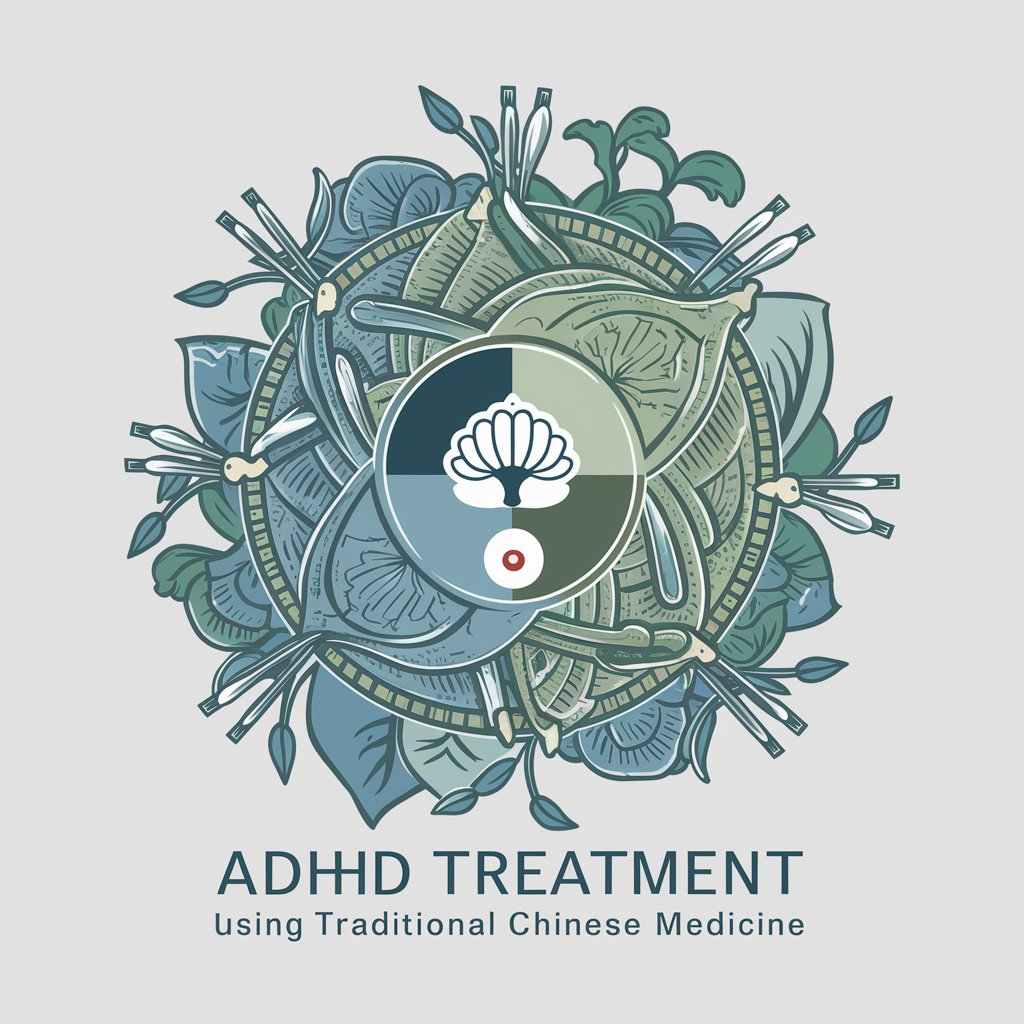
Mystery 2
Unravel Histories, Uncover Truths

BrentaSoft
Empower Your Business with AI-Driven Management

Frequently Asked Questions About the Skin Treatment Outcome Predictor
What data is necessary to use the Skin Treatment Outcome Predictor effectively?
To use this tool effectively, you should provide detailed patient data including age, gender, specific symptoms, duration of symptoms, previous treatments, and any relevant medical history.
How accurate are the predictions made by the Skin Treatment Outcome Predictor?
The accuracy of predictions depends on the quality and completeness of the data provided. The AI uses historical data patterns to make predictions, which are regularly updated with new research and outcomes.
Can this tool diagnose skin conditions?
No, the Skin Treatment Outcome Predictor does not diagnose. It is designed to predict treatment outcomes based on provided data and should be used as a supplementary tool in consultation with healthcare professionals.
Is there any support available if I have questions while using the tool?
Yes, user support is available through the platform. You can access FAQs, user guides, and direct support from customer service for more specific queries or issues.
Can the predictions from the tool be integrated into electronic health records?
Yes, predictions can be integrated into electronic health records (EHRs), allowing healthcare professionals to access AI-generated insights directly within the patient’s medical records.
